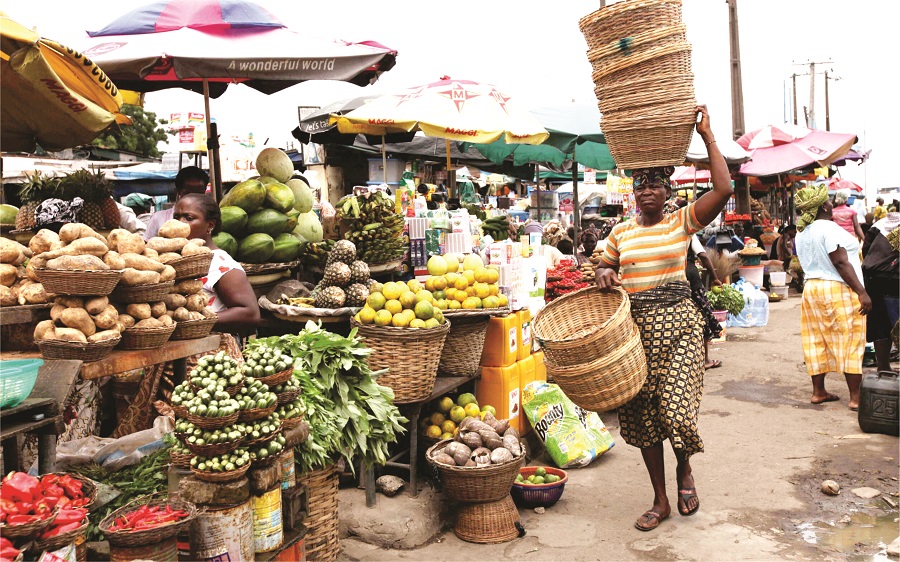In February 2024, Nigeria witnessed a staggering surge in imported food inflation, reaching an alarming 29.8%, marking a significant leap from the previous month’s 26.3%. This spike translates to a 352 basis points increase, posing severe economic challenges for the nation.
A deeper analysis reveals that imported inflation has been on a relentless upward trajectory for over four years, driven by internal and external factors. Externally, the global supply chain disruptions triggered by the Covid-19 pandemic, the Russia-Ukraine conflict, and soaring global oil prices have exerted immense pressure on Nigeria’s economy. Internally, the scarcity of foreign exchange (FX) and subsequent devaluation of the local currency have exacerbated the situation.
According to data from Nairalytics, the Naira depreciated by 37.7% and 17.3% in January alone, both at the official and parallel markets, closing at N1,456/$ and N1,470/$ respectively. The currency has depreciated by a staggering 43.4% and 24.7%, closing at N1,602.75/$ and N1,614/$ respectively.
Consequently, the headline inflation rate soared to an alarming 31.7%, nearing a 28-year high during the review period. Significant increases in the inflation index’s core and food components propelled this surge.
Food inflation surged by 251 basis points to a staggering 37.92%, while core inflation, excluding farm produce and energy, rose by 154 basis points to 25.13%. The National Bureau of Statistics (NBS) attributes this surge to sharp increases in the prices of staple food items such as bread, cereals, yam, tubers, fish, oil, fat, meat, fruit, and coffee.
Similarly, the uptick in the core component was fueled by rising costs of road transportation, accommodation, medical services, and pharmaceutical products.
Despite the Central Bank of Nigeria’s (CBN) implementation of various policies to curb inflation and manage FX volatility, the inflationary pressure continues to mount. The CBN had hiked the benchmark interest rate (MPR) by over 700 basis points between April 2022 and January 2024, yet inflation remains unabated, signaling the challenges faced in taming the inflationary trend.
In line with the government’s commitment to addressing food inflation, President Tinubu’s administration has maintained its stance against food importation. This position was reiterated during a recent meeting with the Forum of State Chairmen of the All Progressives Congress (APC), underscoring the imperative of tackling food inflation domestically.
However, Nigeria’s heavy reliance on food imports has strained the exchange rate and trade balance. Data from the National Bureau of Statistics (NBS) indicates a substantial increase in agricultural imports, reaching N2.28 trillion in 2023, up by 22.3% from the previous year.
In contrast to the stance against food imports, the CBN recently announced the allocation of 2.15 million bags of fertilizer, valued at over N100 billion, to bolster domestic food production and stabilize prices within the agricultural sector. Additionally, the release of 42,000 metric tons of maize and millet from reserves aims to mitigate the escalating cost of food in the country.
Looking ahead, the CBN’s Monetary Policy Committee (MPC) is scheduled to convene for its second meeting of the year. The Committee faces the critical decision of maintaining the current stance or further hiking rates, following the recent 400 basis points increase. With the interest rate-inflation differential currently at a deficit of 8.95%, the CBN is expected to adopt an aggressive contractionary policy to narrow this gap, albeit possibly at a slower pace or allowing previous rate hikes to take effect.











